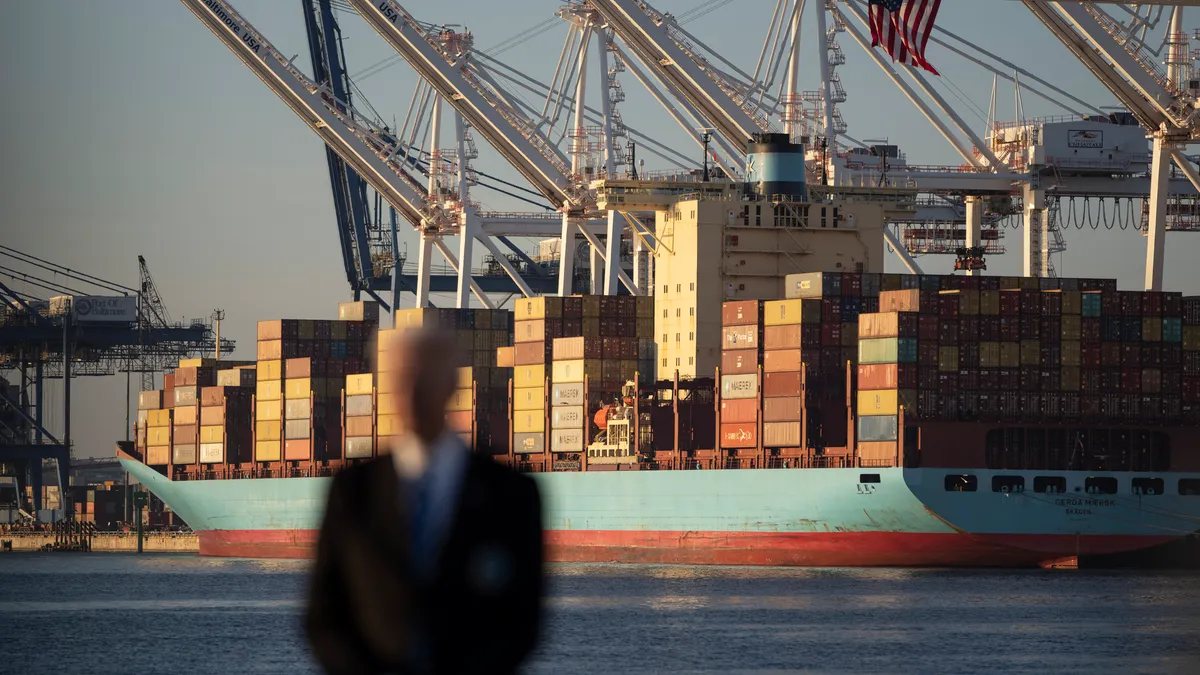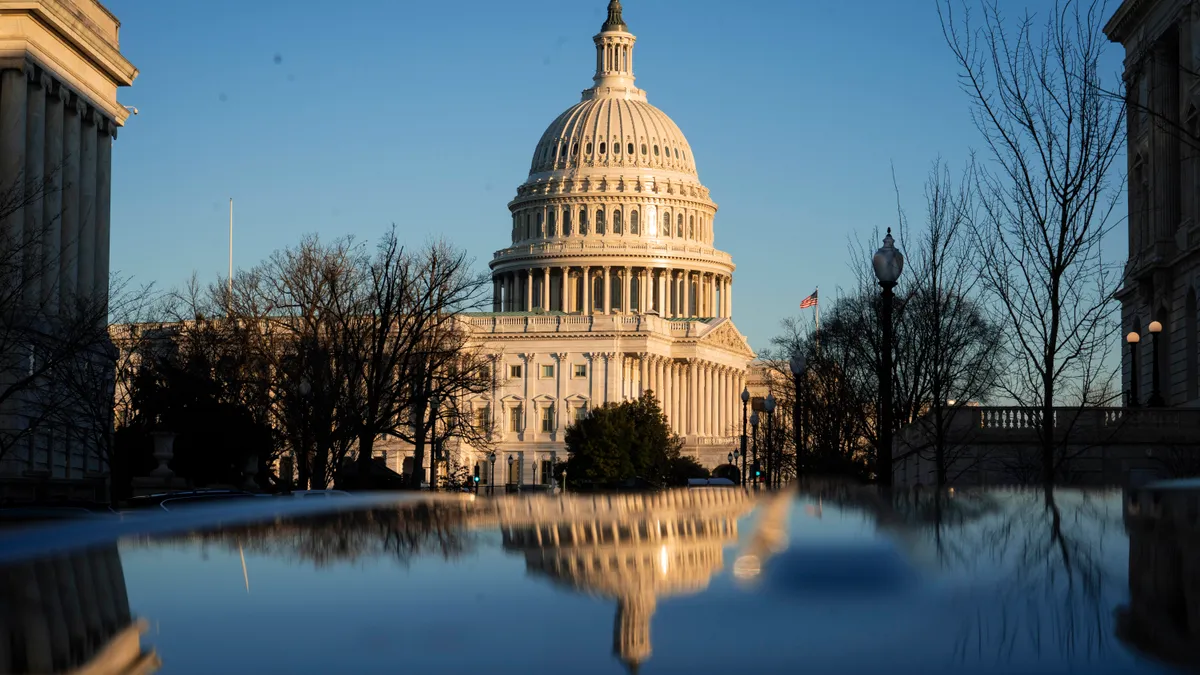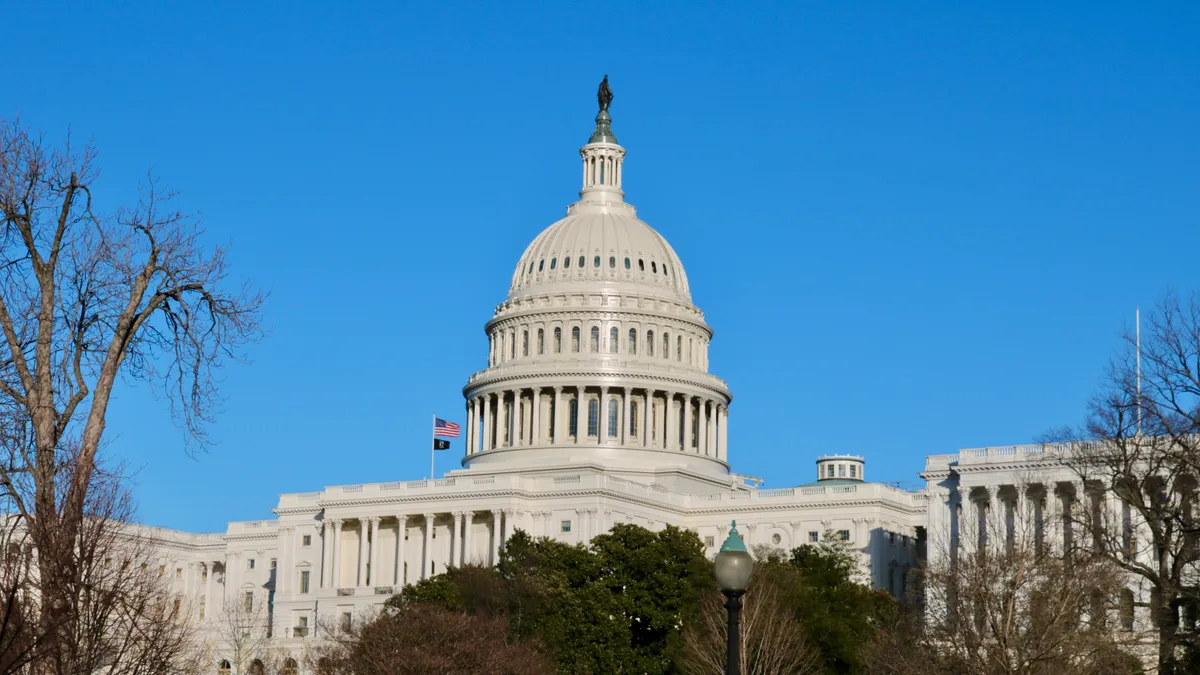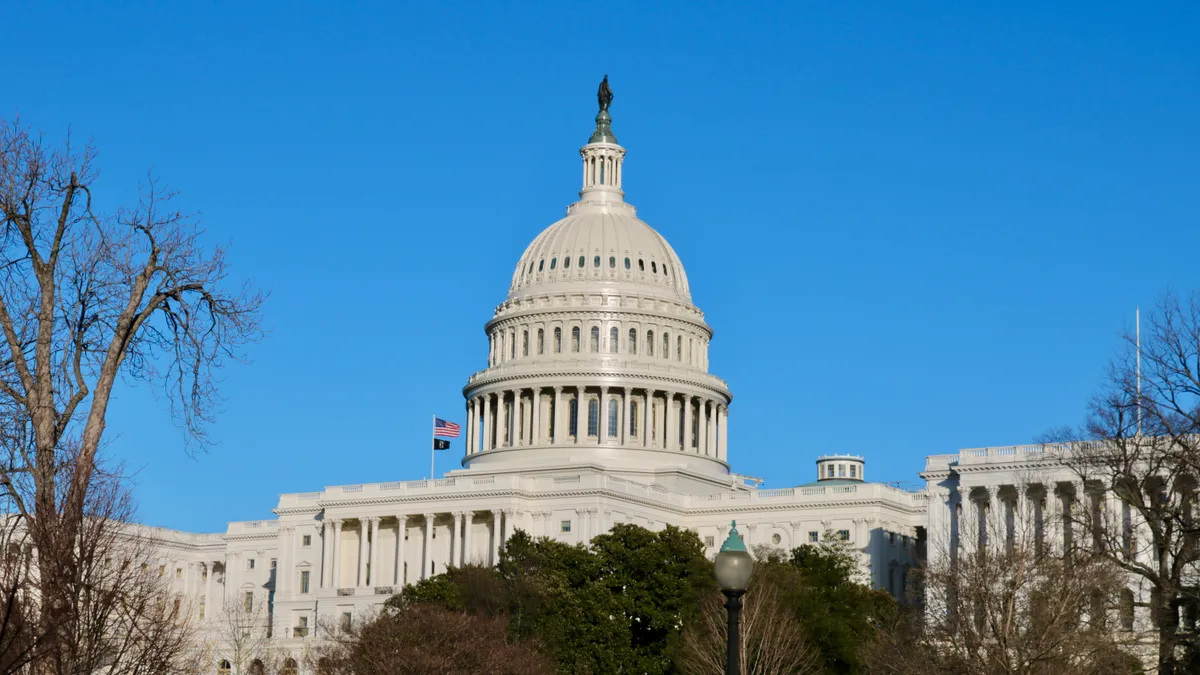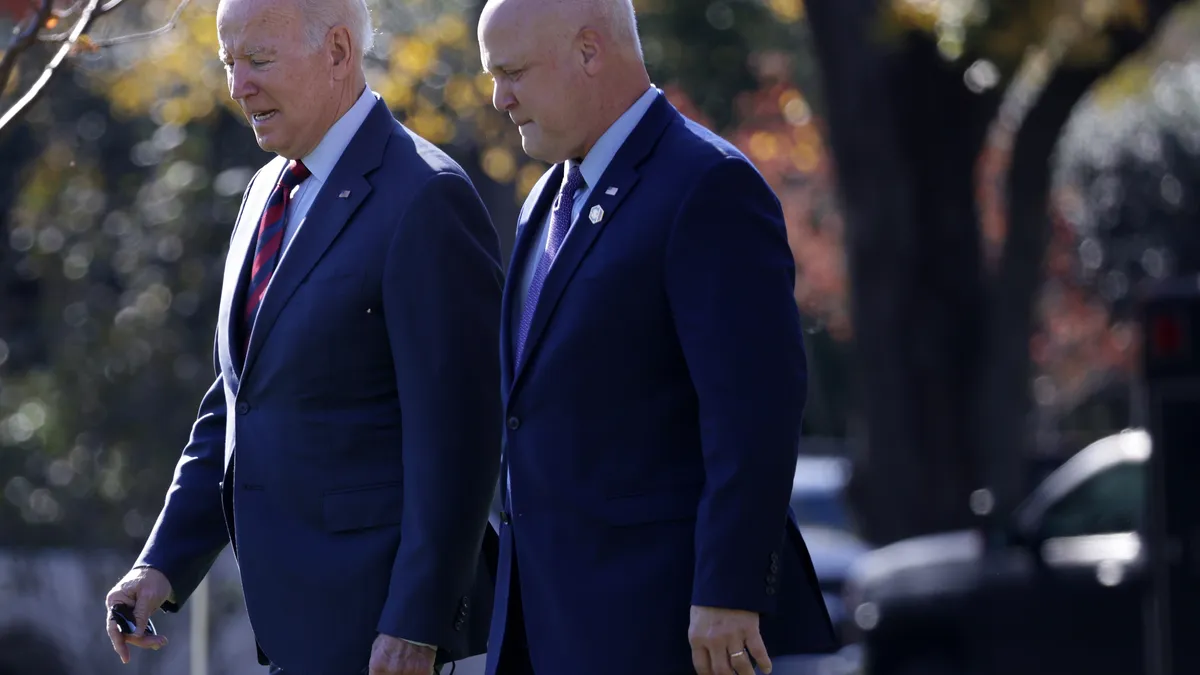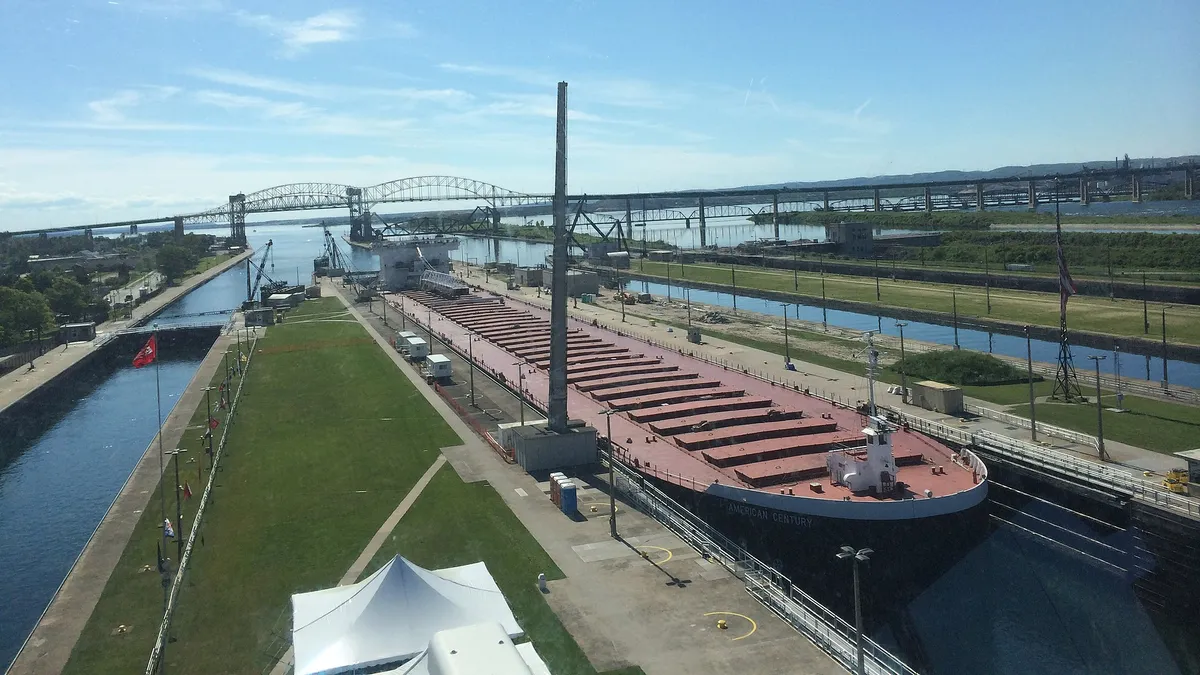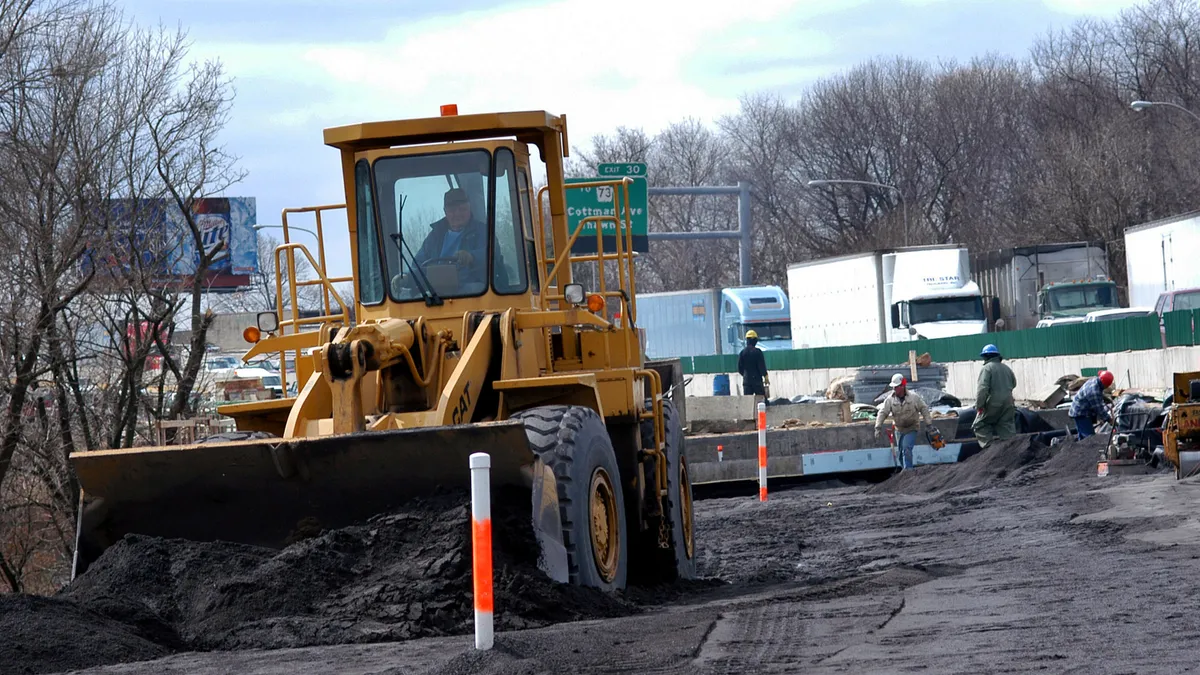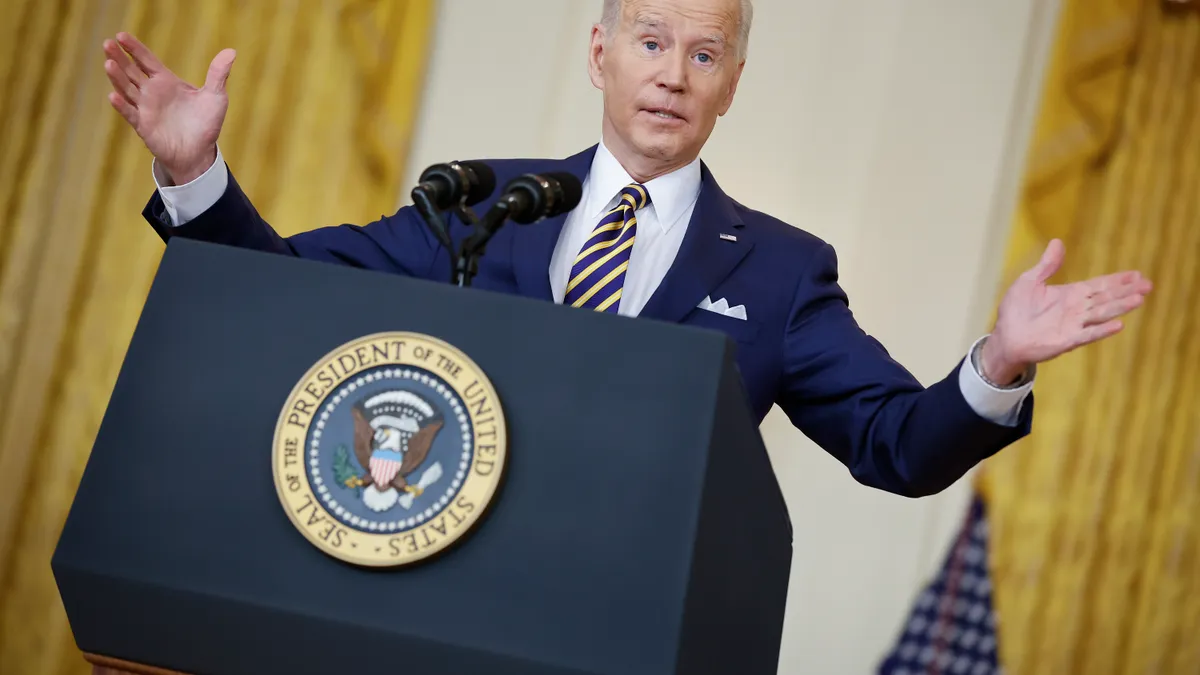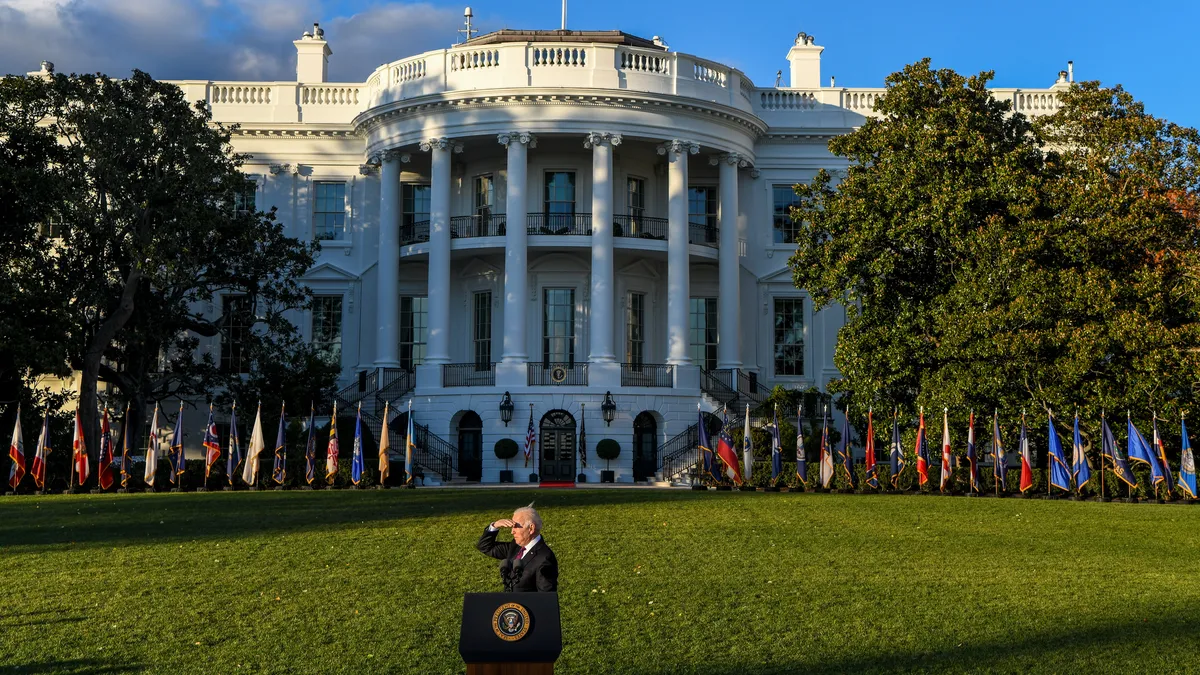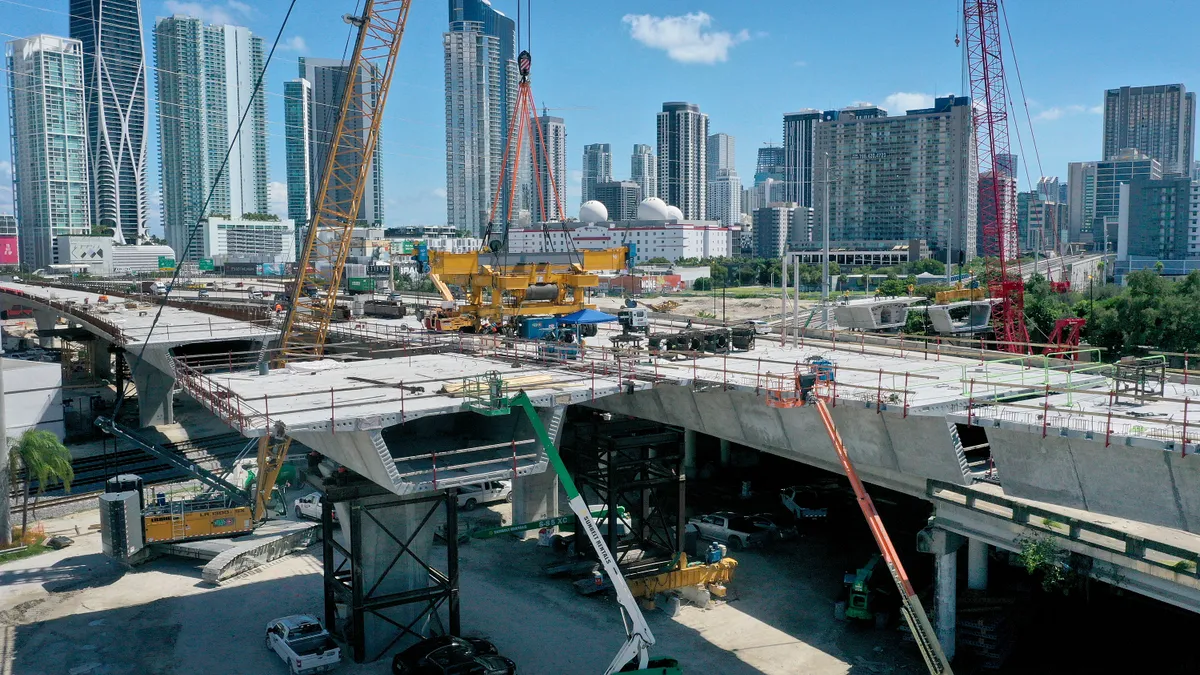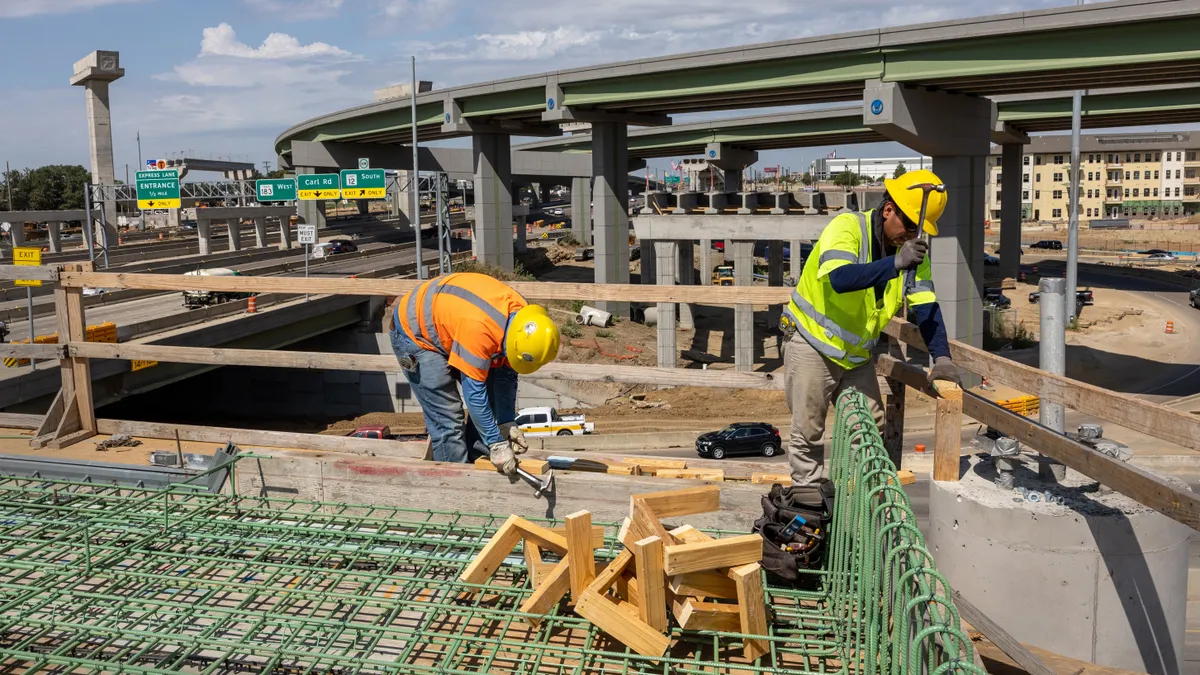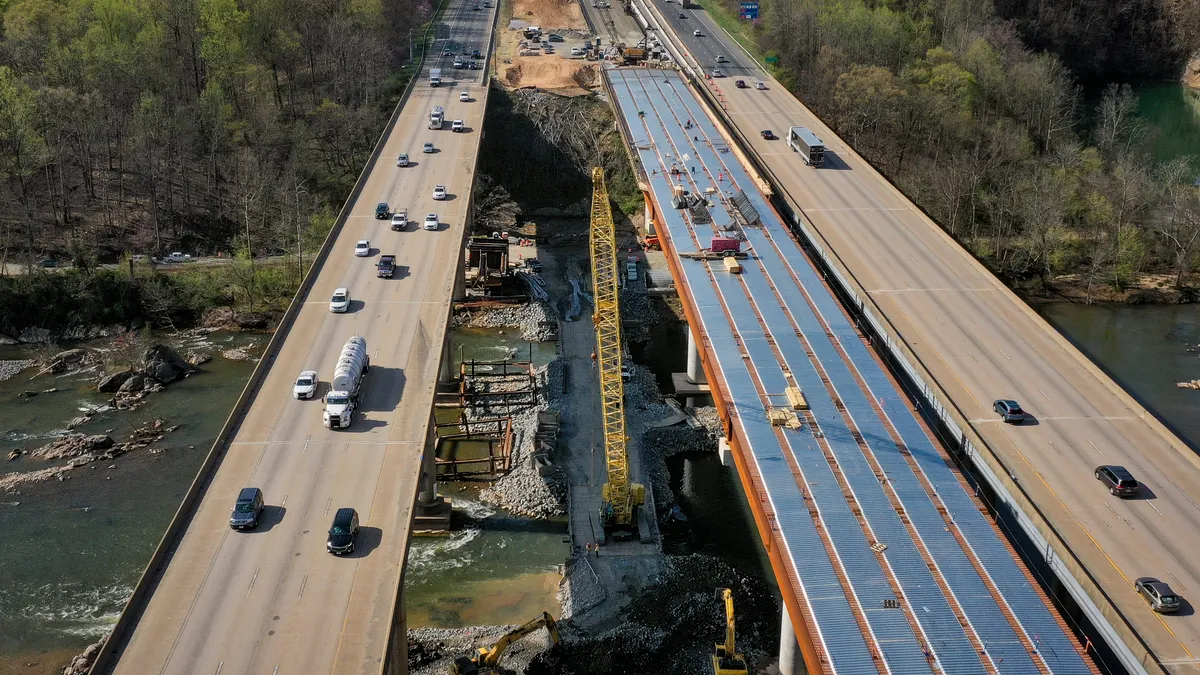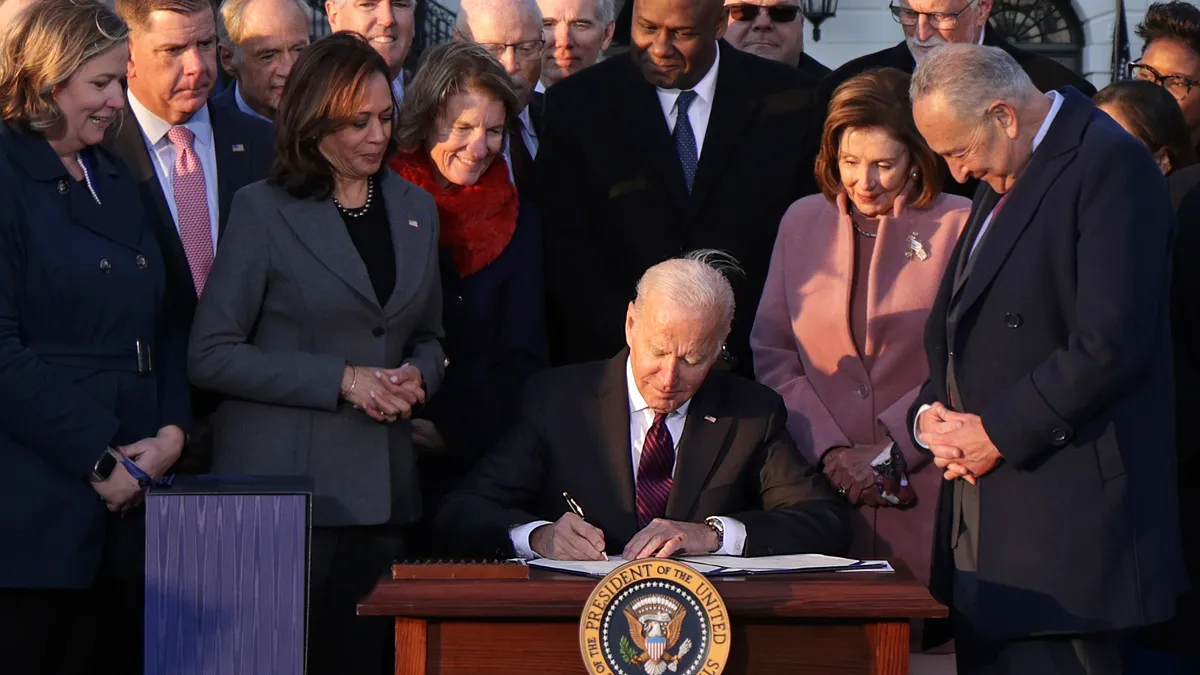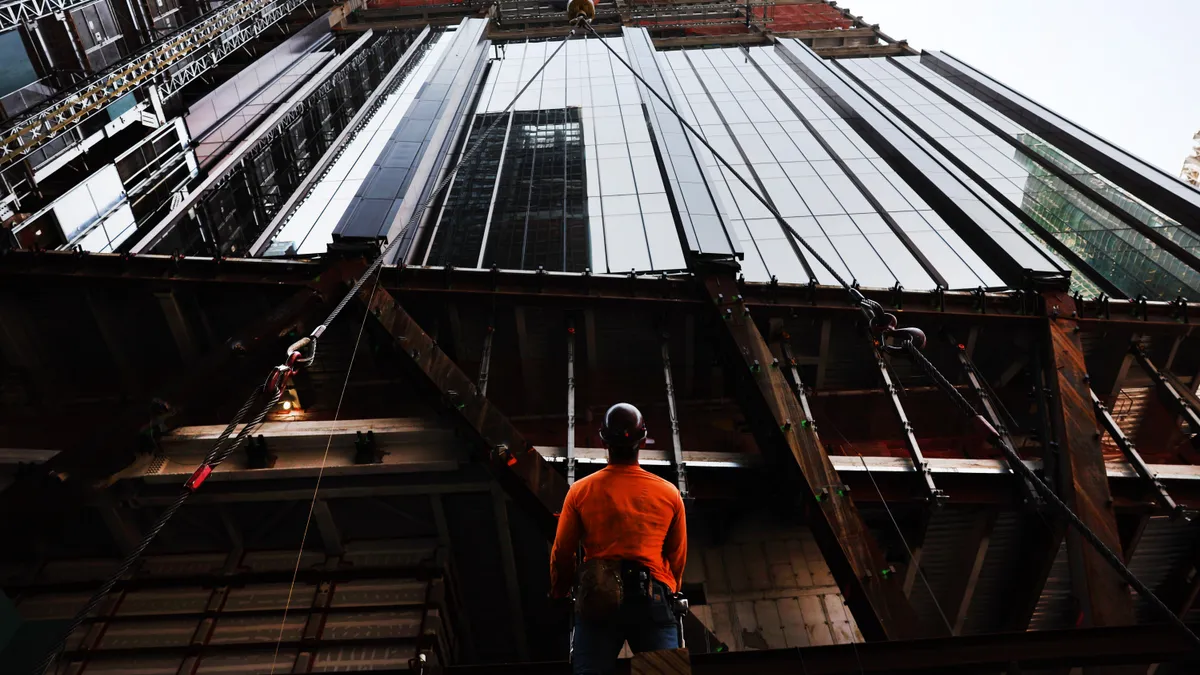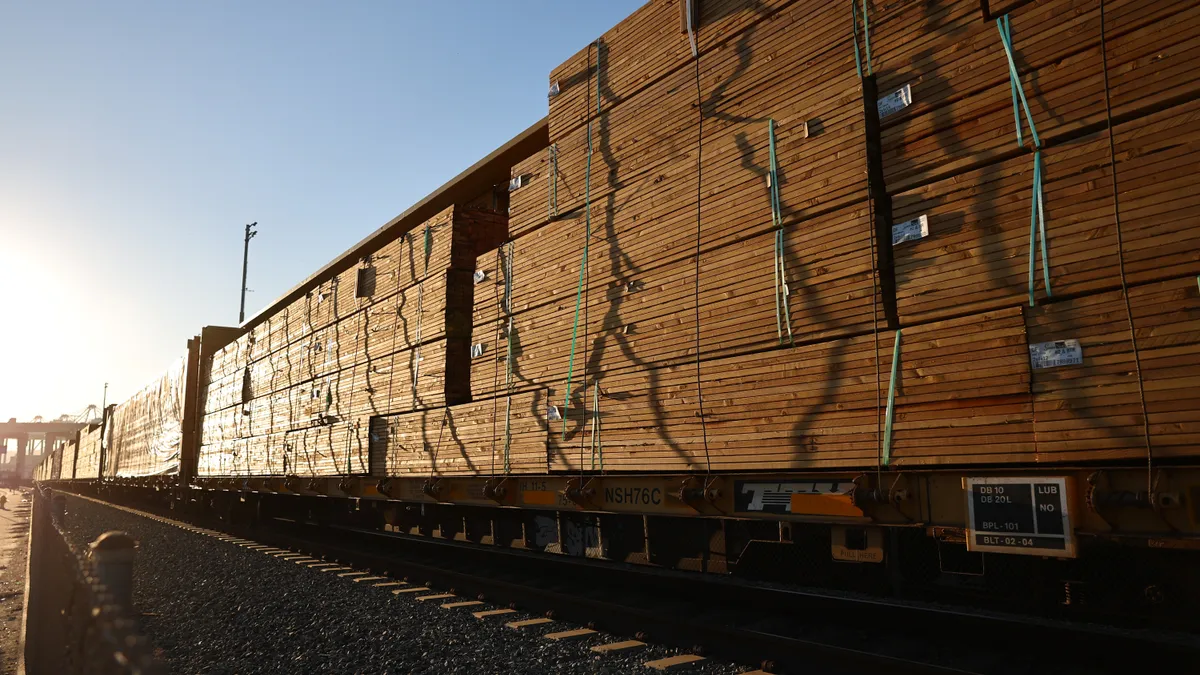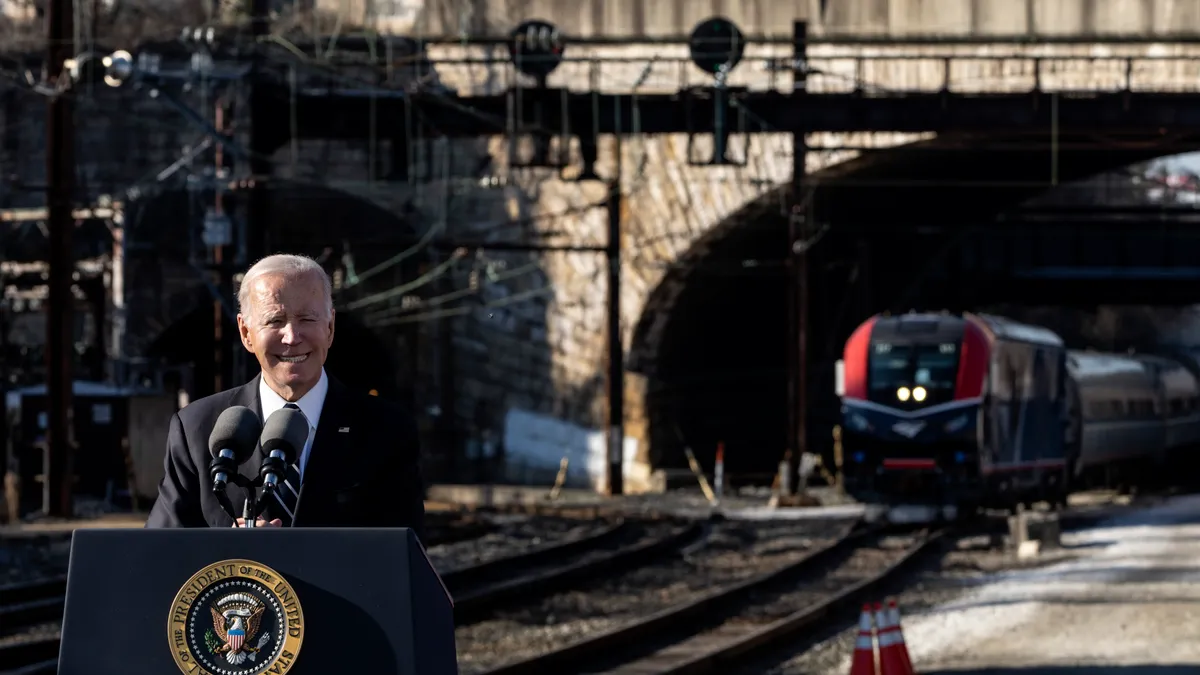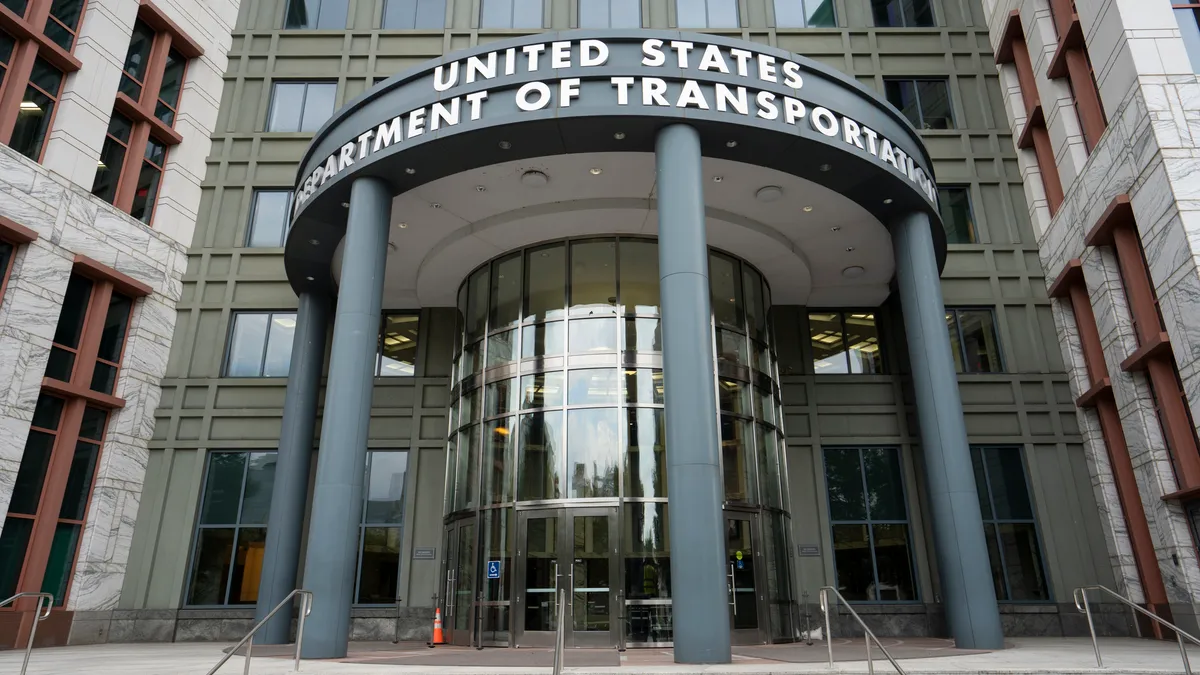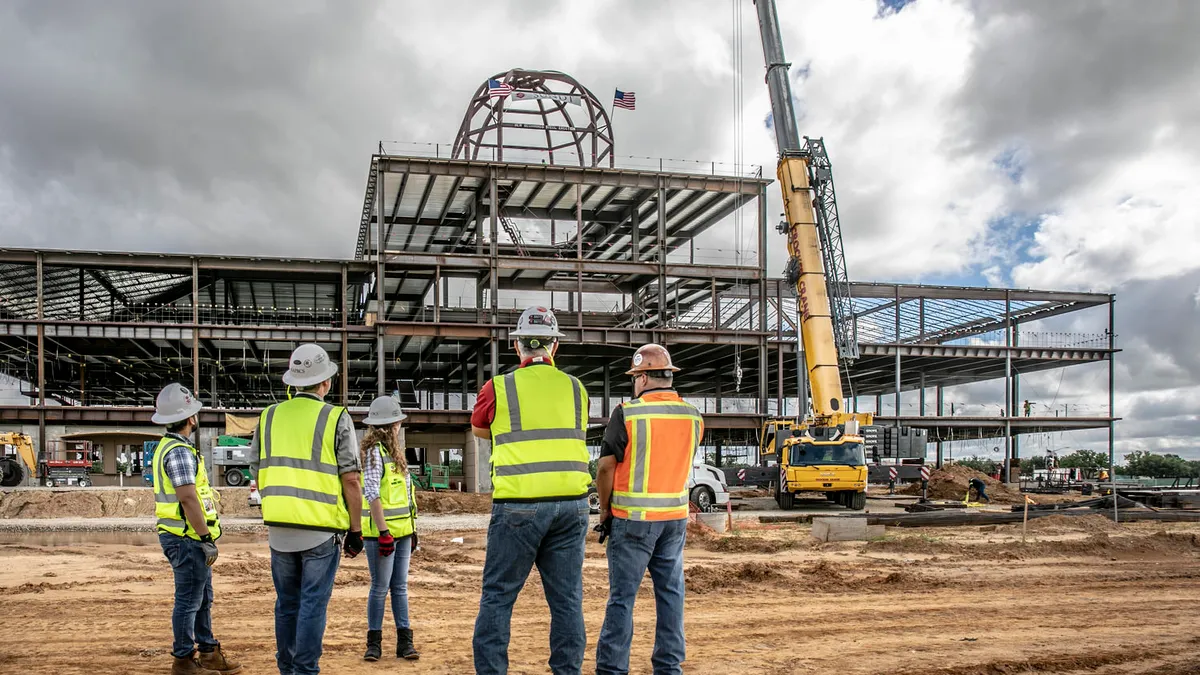Dive Brief:
- The White House said last week that it has announced over $220 billion in Infrastructure Investment and Jobs Act funds for more than 32,000 projects across the country, a year and a half after the five-year, $1.2 trillion legislation was signed into law.
- While that is behind pace if an equal amount of funding were disbursed each year, the Biden administration is taking steps to get money out the door faster. It is accelerating the pace of design, construction and permitting through its Permitting Action Plan and partnering with a wide range of organizations and localities to speed up work.
- The White House broke down awarded funding by state and project type, and highlighted notable efforts financed by the law, such as $934.7 million to update the Montgomery Locks and Dam in Pennsylvania and $292 million for the Hudson Tunnel Casing Project between New York and New Jersey. The General Services Administration has mapped out all IIJA project awards.
Dive Insight:
Despite the announcement, a potential challenge to the infrastructure act rollout is the current standoff over the U.S. debt ceiling. If a compromise is not reached before June 1, the country could default on its debts, which would have enormous consequences for the U.S. economy.
“The president’s ‘Investing in America’ agenda is working,” said Mitch Landrieu, coordinator and senior adviser for infrastructure act implementation, in a recent press conference. “[A default] threatens to undo all of this major progress going forward … The consequences are unpredictable but it can’t have anything but negative consequences on the work that we’re trying to do.”
As White House and congressional leaders discuss how to avoid a default, programs such as education, housing and defense are being negotiated and some lawmakers have proposed clawing back some $30 billion in unused COVID-19 funds. Contractors and related groups are watching to make sure IIJA funding doesn’t get slashed as part of a political deal.
“We are certainly watching to make sure the bipartisan infrastructure funding does not get cut,” Brian Turmail, vice president of public affairs and strategic initiatives at Associated General Contractors of America, said in an email. “Notably, the House did not propose cuts to it when it voted to increase the debt ceiling.”
In recent earnings calls, several heads of public construction firms said they were continuing to see the impact of the infrastructure act, and expect to benefit more in coming years. They are also keeping an eye on the debt ceiling talks.
AECOM CEO Troy Rudd said he did not expect IIJA funding to be cut, and pointed out that there is bipartisan support for infrastructure investment.
“We have a hopeful sense of optimism that sensible leaders negotiate, we expect that that will happen, and we’ll get a successful outcome and this will pass us by,” Rudd said in an earnings call. “But, even with the uncertainty, the short answer on IIJA funding is that it’s procedurally difficult and politically impractical to claw back that funding, so we don’t see that being at risk.”
Jacobs CEO Bob Pragada said the IIJA is bolstering the firm’s bookings and pipeline. When asked if Congress’ negotiations were slowing IIJA progress, he responded, “The short answer is no. We're not seeing that at all.”
"[The] IIJA, it's the law. So, as far as it being repealed, it would have to be significant — there would have to be a new law. And so, we feel confident about that," Pragada said.



